Results 21 to 30 of 37
Thread: Is this a real filly or not?
-
01-09-2013, 07:35 PM #21Senior Member



- Join Date
- Apr 2008
- Location
- Essex, UK
- Posts
- 3,816
Thanked: 3164
Pixelfixed - the usual but unsubstantiated) answer is "pre 1967" however, the subject is more complicated than that (it always is, isn't it!). There is a clear demarcation point - the earlier Imperials do not have the JMP markings, while the later ones do.
The very early boxes seem to be mostly unadorned by printing, black, with a series of raised ribs (like chevrons) on them.
On one forum I read words to the effect that 'it seems strange that we know more of some Sheffield firms that stopped trading 150 years ago than we do about JMP which closed about two decades ago' - how true!
Regards,
Neil
-
01-09-2013, 07:41 PM #22Senior Member



- Join Date
- Apr 2008
- Location
- Essex, UK
- Posts
- 3,816
Thanked: 3164
The actual change in Spanish Civil Code was the ban of open razors in barbershops, salons, etc to control the spread of diseases like HIV, Hepatitis etc. In order to make razors to the same steel formulation JMP had to contract to import a huge amount of Swedish steel, and the fall-off in sales made such a large capital expenditure impossible.
Regards,
Neil
-
The Following User Says Thank You to Neil Miller For This Useful Post:
sashimi (01-09-2013)
-
01-10-2013, 05:26 PM #23

Surely Mr Filarmonica would have been able to source it's steel from their own steel industry?
I am surprised that they imported it.
Has anyone been in contact with the current manufacturer regarding history or re introduction of straight razors?
-
01-10-2013, 07:53 PM #24Senior Member



- Join Date
- Apr 2008
- Location
- Essex, UK
- Posts
- 3,816
Thanked: 3164
I am quite sure they did, jaycey. Even so, steel is an alloy - Sheffield steel for instance relied on swedish ore as did german: in fact before swedish ore became readily available spanish and russian ore was alloyed with the native british steel. It stands to reason that the same type of scenario held true for spanish steel, even though they have the famed Toledo Steel which was used in Filarmonicas according to an old thread on this site. When the company was not invested in (after the father and then the son died) and began its downward spiral, I suppose economies had to be made - they bought what they could afford. I have no doubt that Swedish ore was added to Toledo steel, but I don't have a clue what they cost relevant to each other. The fact of the matter is not really the price of the swedish steel, but its unit cost - I guess they had to buy it in large, set units and could no longer afford to do so.
Regards,
Neil
-
The Following User Says Thank You to Neil Miller For This Useful Post:
pixelfixed (01-10-2013)
-
01-12-2013, 05:23 PM #25

I must to be a knwoledge in filarmonicas, musn´t be?, but for me the Jose Monntserrat Pou is an medium razor, I remember in one on my folarmonicas box som like "since 1907", but i can not find this box, well, The firs filarmonicas used to bing anothe mark stamped in the axel with anoyher german fabric, so i think in the begining the creator of the mark imported axels ta german and mak them with his stamp, after you have the famous 14, everybody habe one of them, my older filarmonica is in acetato with silver decoraton around 1920, an 14, you have too the bullfigther series 1950- and after, and the doble temple and medalla de oro twice around 1955-65, after the death of Jose Montserrat apear the novodour, shoter than his precedents but too useful and a bit mor strong with hard bears, a kind for hard bears after the civir war, an a kind for soft skin, and another for hair cut, the price if i undertand ok is a nousense, 10 or at last 20 euros is enauth for one of the clasic ones and 5 for one of the last ones with the scals made of bad blue and green plastic, i forgot them years ago, of course have trhee or four, one aligator and one nude woman with the scales of colored ivory, like jewels only, but in spanish kinds i prefer palmera or Montserrat with an leopard like trademark, i can not remember more sorry, regards
-
01-12-2013, 05:41 PM #26
-
01-12-2013, 05:46 PM #27
-
The Following 2 Users Say Thank You to jaycey For This Useful Post:
Catrentshaving (01-12-2013), pixelfixed (01-12-2013)
-
01-12-2013, 06:28 PM #28

En eso estoy seguro jaicey y disculpas previas pues uno hace lo que puede, os decia que las Filarmonicas siempre han sido aqui en España una navaja media regular, en un principio las mas viejas se conocen por tener hojas exageradamente largas y doble sello en las mismas uno con la filigrna de Jose Montserrat Pou y otro con diferentes casas alemanas como Dos Hermanos etc; siempre han sido las mas apreciadas, en ese momento era habitual que la casa vendedora pusiera tambien su sello inciso en el acero, como "vacidores hermanos aquilino, lugo, calle real 13" por poner un ejemplo, pues estas primeras filarmonicas basicamente importaciones de otro catalan inteligente mas tenian la calidad de muchas otras procedentes de lolingen mas caras y dificiles de encontrar, aqui seguiamos usando la navaja tipica para hacer lo que se podia a por lo cual las nvajas de afeitar inglesas y alemanas eran una innovacion, te hablo de finales del XIX, propiamente dichas solo conozco el caso de las navajas de afeitar españolas toledanas de los tiempos del acero de herradura del S. XVII y XVIII, luego hasta bien entrado el 20 no hicimos nada propio. Dentro de las filarmonicas tienes la famosa 14, todos tenemos alguna, en ese tipo de las primeras en aparecer solo con el emblema de Jose Montserrat Pou, hay los tipos para barba dura y piel suave, generalmente de acetato o celuloide con incristaciones en plata del anagrama de filarmonica o decoraciones de tipo modernista con pajaritos etc, solo conozco la llamada cocodrilo y la llamada mujer desnuda labradas en marfil, las dos las tengo pero mas como joyas que como navajas de uso, todas son hollow, como deciis por allá, una serie de los 50 llevaba en la hoja una escena de toreo, marcada al acido, y luego no hay que olvidar el famoso adelanto de los 40 de doble temple marcadas en un inicio en la hoja con el texto en plata y oro, mucho ruido y pocas nueces; luego de la muerte del fundador aparece la novodour, mas corta que sus hermanas pero muy comoda, con las cachas en platico malo azul verde y otros tonos chillones, se conocen bien; franmente tengo mis dudas que Filarmonica usara alguna vez hojas españolas, al contrario de palmera una gran marca o Montserrat con un leopardo de angrama de gran calidad igualmente, ya os comenté que he tenido una caja de filarmonica de los 50 que ponia algo asi como "desede 1907) asi que no espereis nada del XIX y mucho menos anterior, os mando una retrospectiva en imagenes desde las mas antiguas que conozco hasta las mas comunes, las ilustradas en la hoja y las que convinan hojas alemanas con mangos de filarmonica como vereis los ejes son los originales, al fin y al cabo Jose Montserrat solo era un comerciante catalan mas que vio negocio en lo que otros como de costumbre en estas tierras no se atrevian, un saludo y disculpas por mi ingles
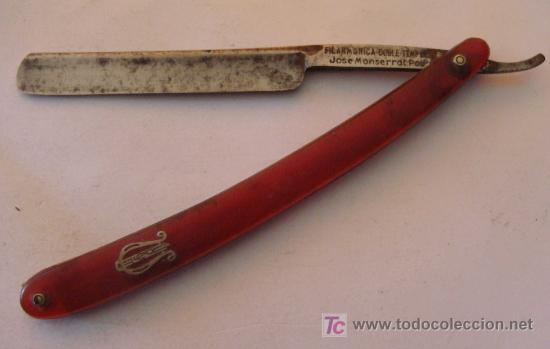
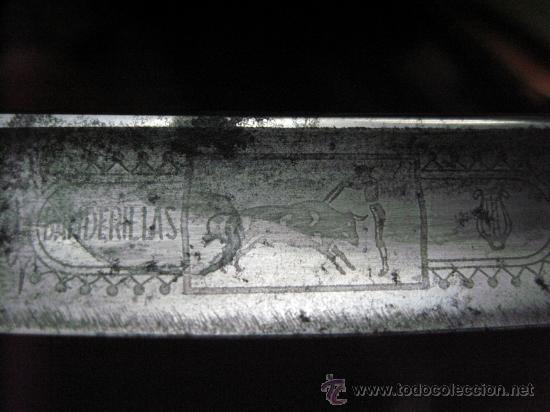
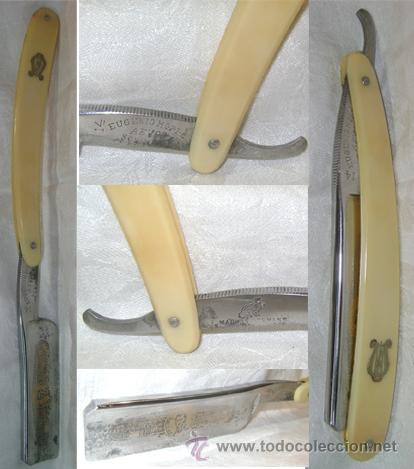
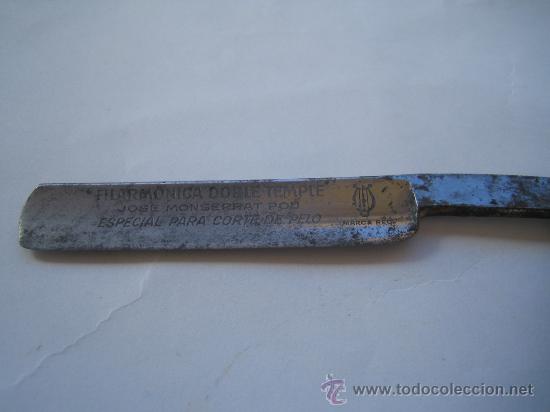
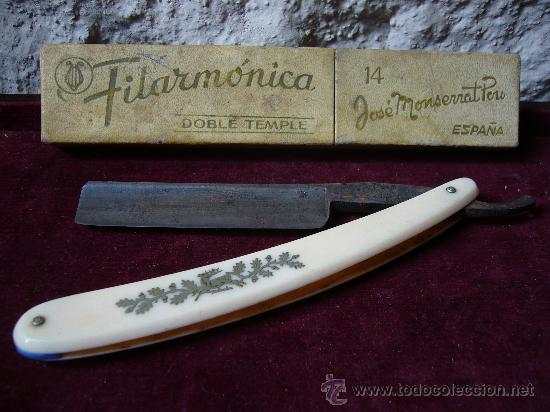
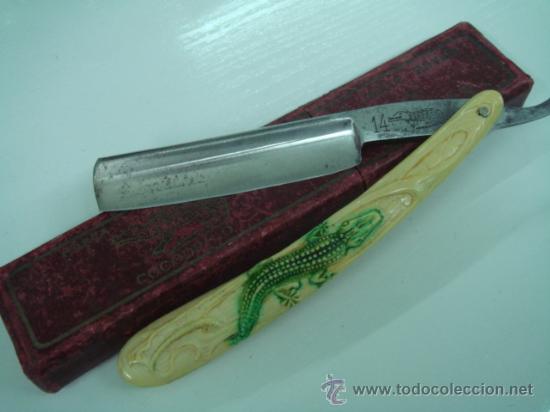
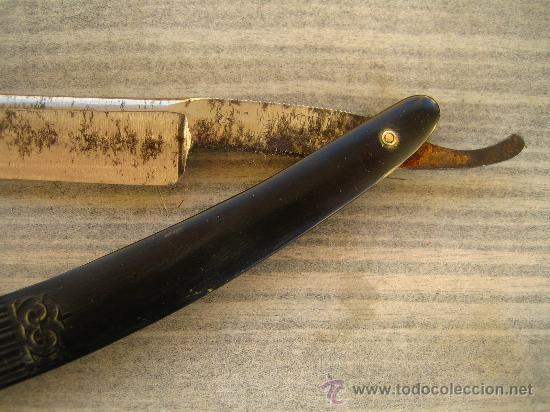
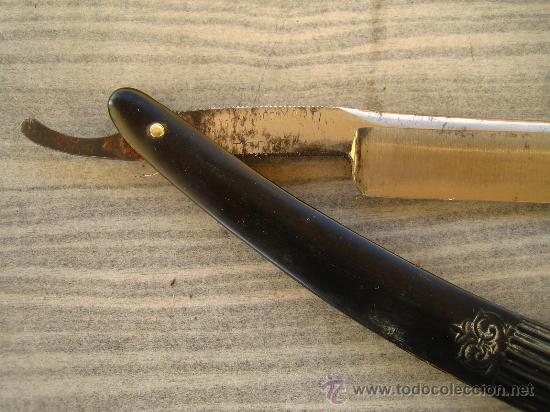
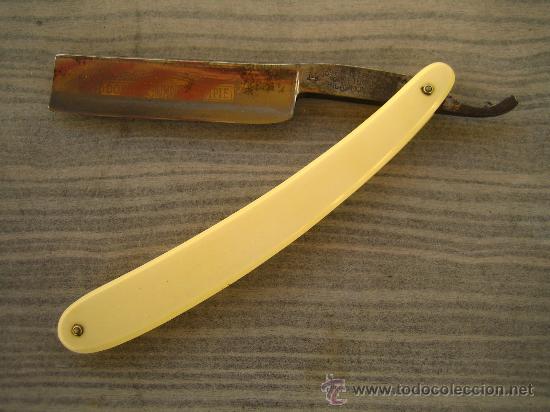
-
The Following 6 Users Say Thank You to Robertoreigosmendez For This Useful Post:
Bordee (11-16-2014), dustoff003 (01-12-2013), jaycey (01-12-2013), pixelfixed (01-12-2013), sharptonn (01-12-2013), tuftey02 (01-14-2013)
-
01-12-2013, 06:39 PM #29

Nice work, Roberto! I can read your English with very little problem, but no one could read my Spanish!
Now, a translation from Jaycey in London! "Don't be stubborn. You are missing out."
"Don't be stubborn. You are missing out."
I rest my case.
-
01-12-2013, 06:56 PM #30


 29Likes
29Likes LinkBack URL
LinkBack URL About LinkBacks
About LinkBacks








 Reply With Quote
Reply With Quote


